
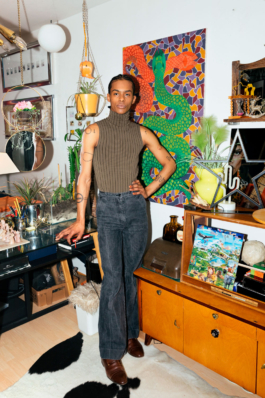
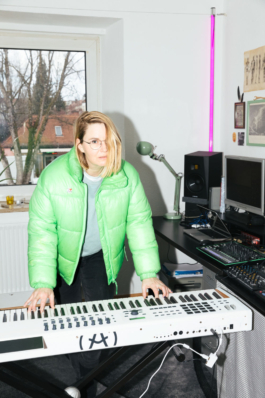
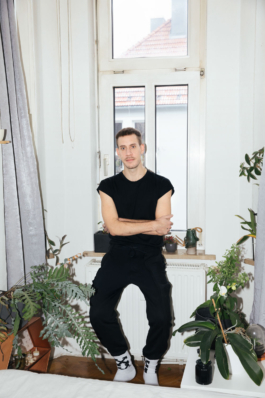
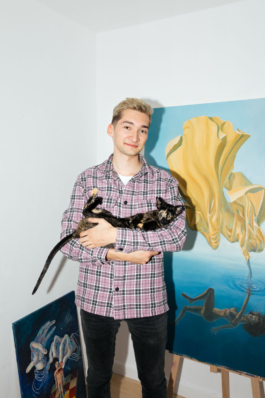
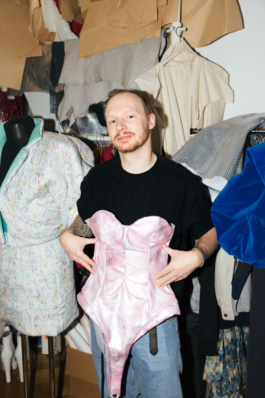
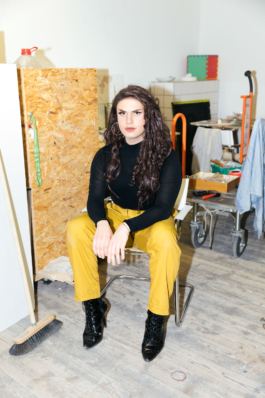
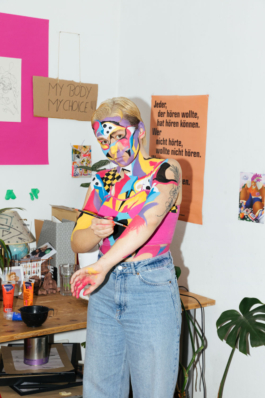
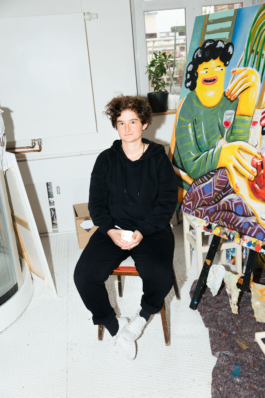
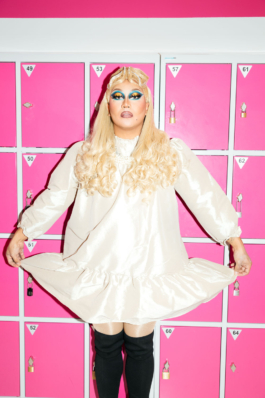
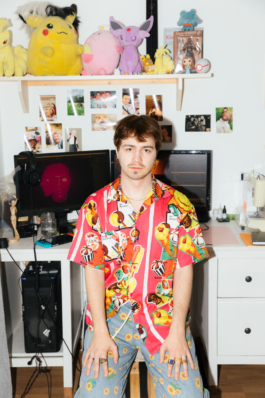
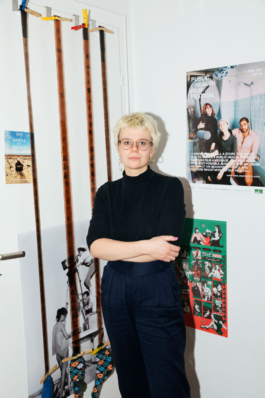
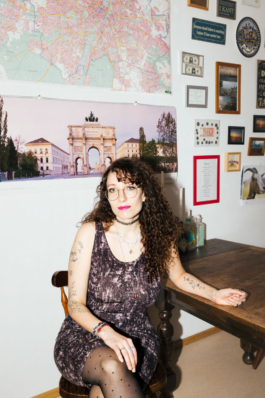
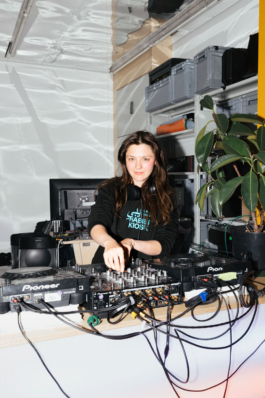
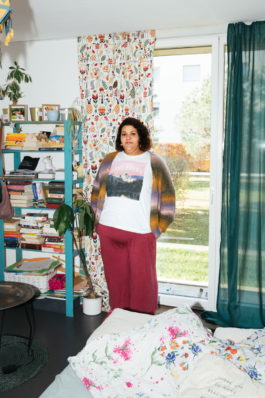
Queer Artists Munich / queer:raum (2021 - 2022)
The COVID-19 pandemic has profoundly impacted the lives of LGBTQIA+ individuals. Safer spaces, such as clubs and bars, have closed, and events like Pride parades have been canceled. The visibility gained in recent years has suffered greatly, with a resurgence of transphobia and homophobia. Now, more than ever, it is crucial to keep the pulse of queer communities alive. While COVID restrictions have mostly been lifted and are becoming a thing of the past, reviving queer culture, pushed into the background, is of utmost importance. Queerness embodies social connection and the potential for creating awareness for a self-determined and discrimination-free life.
For the photo project Queer Artists Munich, I gained insight into the artist scene in Munich by meeting various individuals. Conversations revolved around topics such as their connection to Munich and the local LGBTQIA+ community, the influence of the pandemic on their creative work, and their definition of queerness. The results are portraits of artists in their workspaces, studios, or homes, spanning diverse fields including poetry, dance, music, painting, photography, and drag. This creates a comprehensive snapshot of the queer art scene, featuring artists at different points in their lives and providing a variety of perspectives. Francesco emphasizes portraying his photographic models with their unique personalities and showcasing pride in their queer identities. Additionally, it was a priority to cover the spectrum of identities and consider intersectionality, portraying creatives who are BIPoC and those who don't conform to heteronormative and binary societal norms.
With the artists Kamill Lippa, Johannes Geitl, Sophie Boner, Stella Deborah Traub, Mai Strathmann, Nina Bachmann, Kyrylo Zhornovyi, Theresa Bittermann, Lucas Fellner, Pinay Colada, Daniela La Luz, Federico Brens, and Yassamin-Sophia Boussaoud.
More information about the resulting collective can be found at www.queer-raum.de.



Check our instagram account

queer:raum is a collective of over 30 creative and artistic individuals from the LGBTQIA+ community in Munich. The artists aim to raise awareness about queer issues, advocate for increased visibility of the queer community, and integrate it into the societal mainstream through interdisciplinary actions.
Through diverse events and happenings, including collective exhibitions, performance presentations, readings, and concerts, the collective strives to promote diversity and democratic values, as well as establish queer spaces in Munich.
As part of Christopher Street Day 2022, the queer:raum collective organized its first exhibition at the Münchner Aids-Hilfe e.V., attracting a significant number of visitors. Spread across two spaces, the exhibition featured over 20 queer artists, musicians, and cultural creators from Munich. Additionally, the event included self-organized concerts, drag performances, dance performances, and makeup performances.
For more information about the collective and upcoming events and exhibitions, visit: www.queer-raum.de and our instagram account.
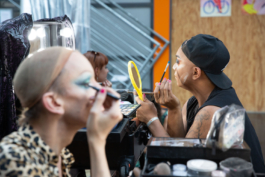
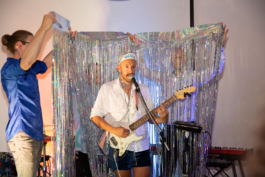
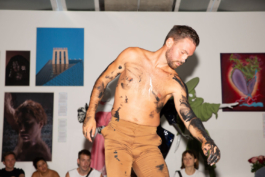
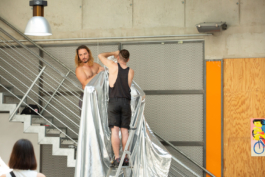
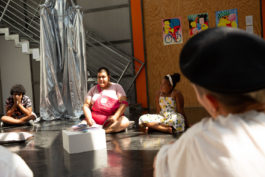
photos: Colin Elias Traub
photos: Colin Elias Traub
photos: Colin Elias Traub
photos: Colin Elias Traub
photos: Colin Elias Traub















Queer Artists Munich / queer:raum (2021 - 2022)
The COVID-19 pandemic has profoundly impacted the lives of LGBTQIA+ individuals. Safer spaces, such as clubs and bars, have closed, and events like Pride parades have been canceled. The visibility gained in recent years has suffered greatly, with a resurgence of transphobia and homophobia. Now, more than ever, it is crucial to keep the pulse of queer communities alive. While COVID restrictions have mostly been lifted and are becoming a thing of the past, reviving queer culture, pushed into the background, is of utmost importance. Queerness embodies social connection and the potential for creating awareness for a self-determined and discrimination-free life.
For the photo project Queer Artists Munich, I gained insight into the artist scene in Munich by meeting various individuals. Conversations revolved around topics such as their connection to Munich and the local LGBTQIA+ community, the influence of the pandemic on their creative work, and their definition of queerness. The results are portraits of artists in their workspaces, studios, or homes, spanning diverse fields including poetry, dance, music, painting, photography, and drag. This creates a comprehensive snapshot of the queer art scene, featuring artists at different points in their lives and providing a variety of perspectives. Francesco emphasizes portraying his photographic models with their unique personalities and showcasing pride in their queer identities. Additionally, it was a priority to cover the spectrum of identities and consider intersectionality, portraying creatives who are BIPoC and those who don't conform to heteronormative and binary societal norms.
With the artists Kamill Lippa, Johannes Geitl, Sophie Boner, Stella Deborah Traub, Mai Strathmann, Nina Bachmann, Kyrylo Zhornovyi, Theresa Bittermann, Lucas Fellner, Pinay Colada, Daniela La Luz, Federico Brens, and Yassamin-Sophia Boussaoud.
More information about the resulting collective can be found at www.queer-raum.de.




queer:raum is a collective of over 30 creative and artistic individuals from the LGBTQIA+ community in Munich. The artists aim to raise awareness about queer issues, advocate for increased visibility of the queer community, and integrate it into the societal mainstream through interdisciplinary actions.
Through diverse events and happenings, including collective exhibitions, performance presentations, readings, and concerts, the collective strives to promote diversity and democratic values, as well as establish queer spaces in Munich.
As part of Christopher Street Day 2022, the queer:raum collective organized its first exhibition at the Münchner Aids-Hilfe e.V., attracting a significant number of visitors. Spread across two spaces, the exhibition featured over 20 queer artists, musicians, and cultural creators from Munich. Additionally, the event included self-organized concerts, drag performances, dance performances, and makeup performances.
For more information about the collective and upcoming events and exhibitions, visit: www.queer-raum.de and our instagram account.





photos: Colin Elias Traub
photos: Colin Elias Traub
photos: Colin Elias Traub
photos: Colin Elias Traub
photos: Colin Elias Traub
Check our instagram account
© Francesco Giordano, 2025 Impressum + DSVGO